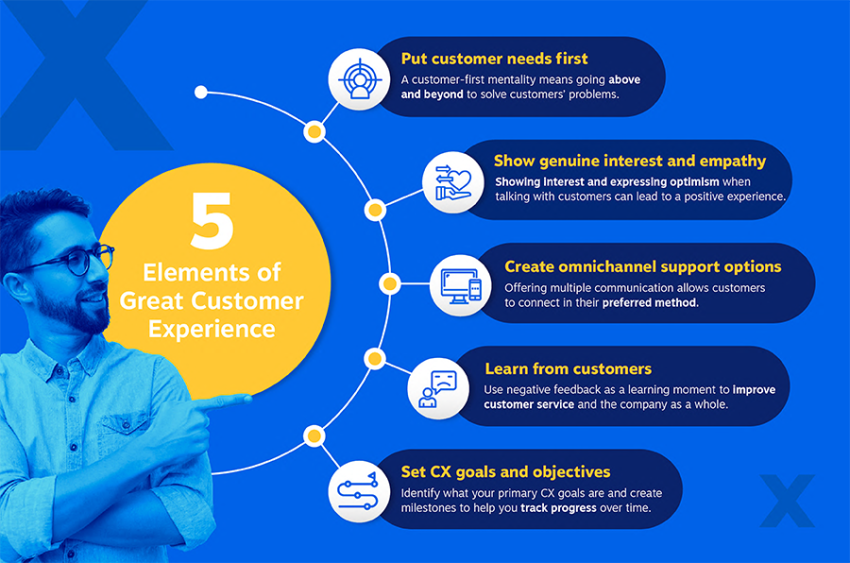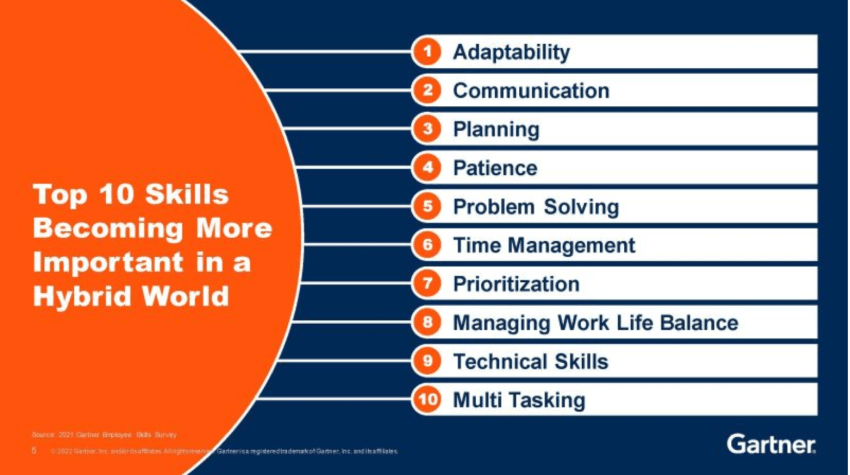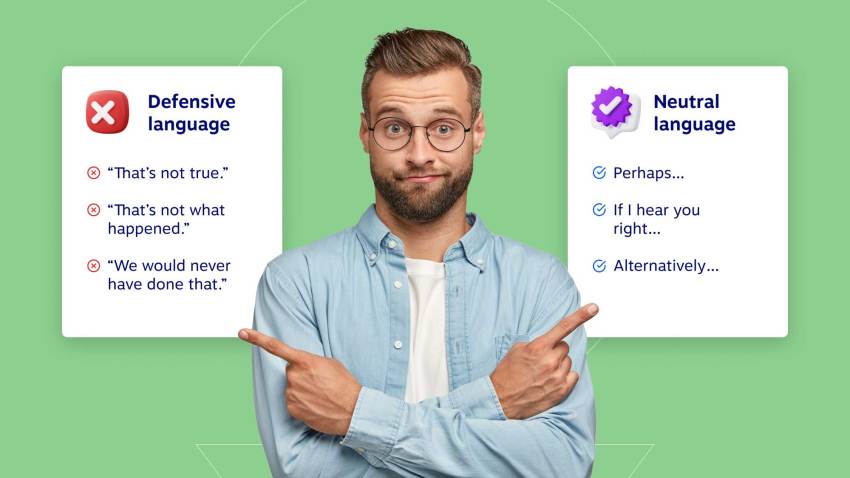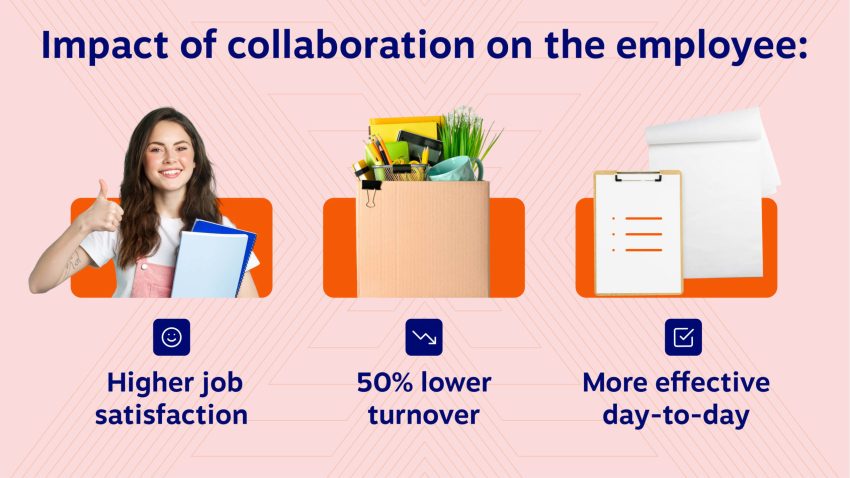Call center agents are your company’s unsung heroes. They shape brand loyalty and ensure business success. They have a set of soft skills that gives them incredible power to handle complex customer situations and turn them around.
How your agents master these essential soft skills impacts customer loyalty. The list of call center soft skills needed for an impactful customer experience (CX) is long. It includes active listening, positivity, collaboration, and resilience.

Valuing soft skills is crucial to building a strong team, delivering standout CX, and driving your company’s growth.
According to McKinsey, personalization increases performance and delivers better customer outcomes. Businesses adopting this strategy in their customer service have seen average revenue increases of 10-15%:

As a call center manager, you can use this guide as a helpful outline for the skills your team needs to elevate performance and increase satisfaction in every customer call. Read on to learn about the most important soft skills that go into delivering first-class CX.
Live Agents Must Stand Out
There’s no denying it: Artificial intelligence (AI) is changing everything about customer service.
But the need for genuine human interaction is more apparent than ever. The way your service agents converse with clients directly impacts your company’s reputation and customer satisfaction. Clients miss warm and personal service experiences.
In fact, 56% of consumers believe most businesses view them as just a number.
This gives your company the opportunity to make a lasting, positive impact on customers by treating them well.
Today, your business’s survival depends on providing unforgettable customer service. Gartner reports that an astonishing 80% of businesses compete primarily on the basis of CX. Forrester also affirms this by saying that CX is the only long-lasting competitive advantage. Therefore, CX isn’t just a strategy. It’s the backbone of your business success.

So, how can you outshine others in customer service? The answer is simple: by improving soft skills.
Enhancing soft skills is your team’s key to success. Given AI’s potential to cut customer support roles by as much as 30%, refining soft skills is an opportunity for your team to stand out and for your agents to advance in their careers.
What is a call center soft skill?
A call center soft skill is an interpersonal behavior or characteristic that helps customer service agents interact.
This helps callers by helping agents to be respectful when asking questions and listening to customer concerns. Thanks to these emotional skills, call center agents build rapport with customers and interact well with them. These skills take more time to practice and develop than hard skills do. But anyone can learn these soft skills.
In customer service, soft skills are about connecting with, understanding, and genuinely engaging with the person on the other end of the line, email, direct message, or chat box. They include clear communication skills and emotional intelligence skills, such as active listening, empathy, and conflict resolution.
Most importantly, they aren’t just nice-to-haves. They’re deciding factors in a memorable call center experience. And they’re increasingly valued across all industries. Gartner highlights that nine of the 10 key skills that are gaining importance in the new hybrid work landscape are soft skills:

Contrast these with hard skills, such as typing speed, call center software proficiency, and product knowledge. Hard skills might help get the job done, but soft skills are vital to the overall experience. In a call center environment, where every interaction can sway customer loyalty, soft skills are the foundation of every successful call.
12 Top Soft Skills Call Center Agents Need to Compete
1) Active, inquisitive listening
Excellent customer service starts with call center agents who are good at active listening and show genuine interest in the customers. The first step in handling a client’s issues is understanding their specific needs. Every call center agent needs to learn and perfect the skills of active listening and asking the right questions. If you’ve mastered these basic skills, you can make your customers feel recognized and appreciated.
For instance, let’s consider a scenario in which a customer calls with a complaint about an erroneous credit card charge. A call center agent who merely offers automated responses might make the client feel that their problem isn’t being addressed. An agent who employs their active listening skill will ask the caller to clarify the facts, inquire about related matters, such as previous unauthorized charges, and reassure the caller that the company takes their issue seriously.
How to improve
Your agent training should always include active listening. This could mean teaching the agents techniques such as repeating what the customer has said to make sure the agent has understood them and asking questions that elicit long answers so the agent can collect as many details as possible about the customer’s problem.
2) Empathetic excellence
Empathy is the capacity to understand and share other people’s feelings. It’s the bedrock of exceptional customer service. When your call center team members cultivate and employ this soft skill, they’re in a strong position to convert routine customer interactions into opportunities for fostering customer loyalty.
Empathy enables your agents to look at issues from the customers’ perspectives, respond with genuine care, and provide tailored solutions that best address their needs and expectations.
Consider the example of what happens when a longtime customer calls to express disappointment over a recent service mishap. An empathetic customer service representative doesn’t merely offer a formulaic apology. Instead, they express genuine regret over the incident and acknowledge that the mishap has inconvenienced the customer.
For example, with this call center soft skills, they might say, “I understand how upset you must be. It’s really frustrating when something you rely on doesn’t perform as expected. I’m very sorry for the inconvenience you’ve experienced.”
After validating the customer’s feelings, the agent might turn the conversation toward a resolution by saying, “I want to make sure we rectify this immediately. Let’s discuss how we can resolve this issue for you.” Throughout this interaction, the representative maintains empathy, mirrors the customer’s emotions, and uses responsive language to show that they understand and share the customer’s feelings.
How to improve
Encourage your agents to actively listen to the customers without interrupting them. Active listening helps agents comprehend the customers’ issues more accurately and understand their emotions better. Include role play in your call center training so agents can practice responding to customers in a caring, understanding way.
Responsive language such as “I understand how upsetting this must be” acknowledges the customer’s emotions and lays the foundation for a constructive conversation.
3) Operational resilience
Call centers are fast-paced and unpredictable. Contact center agents must be resilient to thrive in a dynamic environment that might not always be sunshine and rainbows. Agents’ ability to stay calm, focused, and positive even in challenging situations is crucial for maintaining high service standards and personal well-being.
How to improve
Team leaders should promote a culture of continuous learning and adaptive thinking. Agents should be encouraged to view challenging situations as opportunities for growth rather than setbacks. Practicing emotional agility exercises, mindfulness training, and stress management techniques can cultivate resilience.
4) Patient problem-solving
In a call center, patience isn’t just a virtue. It’s a necessity. Effective listening skills allow agents to analyze situations and apply creative solutions. Problem-solving skills enable them to address customer concerns effectively and ensure that each issue is resolved on the first call.
How to improve
Monitor real call instances to identify escalation points and use them as case studies to illustrate how patience could resolve the situation more effectively. Encourage team members to take brief mental breaks between difficult calls to refresh and reset. Creating a supportive environment that allows employees to voice their concerns can foster patience, as they feel more understood and less pressured.
5) Customer-first mindset
“The customer always comes first” is an age-old business adage for a reason. Agents who own the customer-first mindset prioritize callers’ needs and satisfaction and ensure that every action enhances CX. A customer-first mindset can play out in several ways. It can include increased personalization, shorter interaction times, and omnichannel tools such as Nextiva that provide call center employees with complete pictures of customer journeys.
How to improve
Reinforce customer-centric behaviors through regular constructive feedback and by setting an example in your interactions. Consider implementing metrics that reflect customer satisfaction as key performance indicators. A culture of putting customers first isn’t built overnight; occasional reminders, patience, and a determined example set by leadership are instrumental. Celebrating customer and company wins also goes a long way.
6) Positive language
The power of positivity cannot be underestimated in situations in which conflict resolution takes place. Using positive language and choosing affirmative words are constructive approaches to problem-solving. For businesses that prioritize world-class CX, there are rarely any situations that are so heated that a dose of positivity cannot turn them around.

How to improve
Encourage phrases that explicitly assure the caller of your willingness to assist and solve their issues. For example, instead of saying, “I can’t do that,” guide your team to say, “What I can do is…”. Regular call center QA and feedback sessions can reinforce this positive language use over time. Framing what is possible is better than what is not possible — it’s all about being solutions-oriented.
7) Conflict resolution
All your agents must be able to diffuse tension and resolve disputes effectively. Agents who are skilled in conflict resolution can gracefully navigate disagreements and deal with unsatisfied customers. These agents know how to come up with effective solutions that won’t impact the integrity of your brand.
How to improve
Practicing active listening and empathy in every customer interaction. By expressing understanding and assurance that their problem will be addressed, call center agents can defuse the situation and earn the customer’s trust.
8) Concise communication
Your customers are busy people, and contacting your reps is probably the last thing they have time for. That’s why clarity and brevity are key. Agents must master the ability to convey information and solutions clearly and quickly. This skill prevents confusion and enables them to help customers in the most efficient ways.
How to improve
Don’t overexplain technical topics. It also helps to ask helpful probing questions so the customer service rep can meet the customer at their level of understanding and curiosity for the topic. For instance, many customers don’t care much about why a problem happens and simply want it resolved. A few, though, want to understand its cause to prevent it in the future.
Establish this expectation early on to keep your handle time low and your satisfaction high.
9) Adaptive flexibility
The only constant in a call center is change. The agents who can easily adapt, take in new information, accept new policies, and accommodate shifting customer needs are the ones who will provide the agile service that customers now expect.
How to improve
Prepare your team to make decisions quickly and with a higher level of critical thinking. You hired them to help customers while balancing the needs and operations of the business. Periodically offering training sessions that highlight potential changes and suitable responses. Lead by example: show resilience and adaptability in the face of changes, as this projects a positive attitude that can trickle down to your team members.
10) Collaborative spirit
Teamwork makes the dream work, especially in a call center. If you foster a collaborative spirit at your call center, the team members will be supportive of each other. They’ll be willing to assist each other and share knowledge and positive energy, which will get passed on to your customers.

How to improve
Fostering collaboration requires a strategic yet human-centric approach. Begin team meetings with intros and celebrations for one’s achievements. It can help others discover other’s contributions and how they fit into the larger company objectives. Ensure all team members know who to ask for help and how everyone works together to achieve the mission.
11) Bias toward action
Proactive agents who take an action-oriented approach to problem-solving can address customer issues before they escalate and spot opportunities to enhance CX.
How to improve
Encourage team members to make decisions proactively and support them if they’ve shown care in making a tough decision. This builds autonomy in your team and helps resolve customer concerns faster. When supplemented with real-time feedback and prompt action, you will create an atmosphere that has a bias toward taking action.
12) Ability to simplify complex issues
Turning complex issues into simple solutions is an art. Customer service agents who can distill complicated situations are powerful communicators who can help callers understand problematic issues and embrace the solutions they propose.
How to improve
Dedicate time in weekly meetings to role-play scenarios to convey complicated ideas in simple, understandable language. This approach will not only build the agent’s confidence but also allows others to learn their techniques and analogies.
Related: Customer Service Call Centers: Top Features & Best Practices
The Benefits of Growing Call Center Soft Skills
- Enhanced customer service: By improving your team’s soft skills, you can transform impersonal and adversarial customer service into a warm, individualized experience.
- Increased customer loyalty: Better soft skills result in deeper interactions that lead to a strong relationship of trust. This helps build customer loyalty and increases the likelihood that customers will do business with your company again and recommend your products or services to others.
- Improved career prospects: Increasing your team’s soft skills enhances their current performance and prepares them for growth and leadership roles within your organization.
- Enhanced brand reputation: Stellar customer service, delivered using call center soft skills, improves your brand image and attracts new customers. Your company will gain a reputation for its commitment to customer service excellence.
- Increased AI leverage: According to Gartner, about 25% of organizations will use chatbots as their main customer service channel by 2027. These bots enhance CX by analyzing successful past interactions and applying learned soft skills.
- Reduced agent turnover: Focusing on developing your team’s soft skills can increase job engagement and satisfaction and reduce agent turnover. This results in a stable work environment and an empowered customer service team.
How to Improve Customer Service Soft Skills
👉 Record customer service calls: Review past calls and customer interactions to establish successful strategies and pinpoint missteps. Listening to recorded customer calls and sales calls gives new and longtime agents a chance to evaluate their work and learn from their peers.

👉 Read customer service surveys: Customer feedback provides invaluable insights into how callers perceive your service and your interactions. Surveys provide clear direction about how your team’s approach might need further refinement.
👉 Calibrate on calls: Recurring calibration meetings maintain high-quality service and consistency. These sessions allow agents to share experiences, keep up with industry standards, share tips, and take part in scenario-based exercises.
👉 Reward exceptional customer service: Recognizing agents who offer customers exceptional moments of service can inspire other team members to follow their example. Build a culture of customer service excellence by spotlighting and rewarding superior team performance.
👉 Share helpful podcasts about customer service: Keep up with CX standards by tuning into top industry podcasts. Introducing agents to your favorite podcasts is another way to equip them with innovative strategies and fresh insights to elevate their service game. Top podcasts include:
- Forrester’s The CX Cast
- Walker’s The CX Leader Podcast
- Blake Morgan’s The Modern Customer Podcast

👉 Document the root causes of bad CX: Solving customer problems is an effective strategy, but preventing them is an even better one. By identifying and understanding the root causes of your customers’ frustration, your agents can proactively address and prevent similar issues in the future.
👉 Ask senior agents to train their colleagues: Leverage the wisdom of your veteran team members by having them mentor rookie agents in product knowledge. This approach builds a culture of continuous learning and skill development and creates product experts.
👉 Set a career path for every call center agent: By creating clear long-term career paths for your agents, you show them you’re invested in their growth and incentivize them to further develop their soft skills. You’re offering agents a motivational tool. Their personal development leads to their career success and enhances customer satisfaction and loyalty. It’s a win-win for everyone.
Deliver the Ultimate Agent & Customer Experience
To achieve legendary customer service, always remember the power of human connection.
Soft skills such as empathy, adaptability, collaboration, and positivity empower agents to elevate AI and craft experiences that technology alone can’t replicate.
Nextiva is at the forefront of call center technology, merging AI-powered features and omnichannel capabilities across phone, email, chat, SMS, and more. Nextiva’s AI-powered contact center aligns perfectly with teams who excel in soft skills and affordably and effectively simplifies the integration of advanced AI capabilities.
Nextiva enables agents to harness the power of AI to work faster and smarter by:
- Reducing agent note-taking with automated transcription
- Offering agents real-time insights with AI-powered summaries
- Improving compliance in each customer service call
- Making it possible for agents to help customers across multiple service channels
- Helping agents say the right thing with dynamic scripting
Take your CX to the next level
Discover the top-rated inbound call center solution that can take your customer support team to the next level.

















 Customer Experience
Customer Experience 









